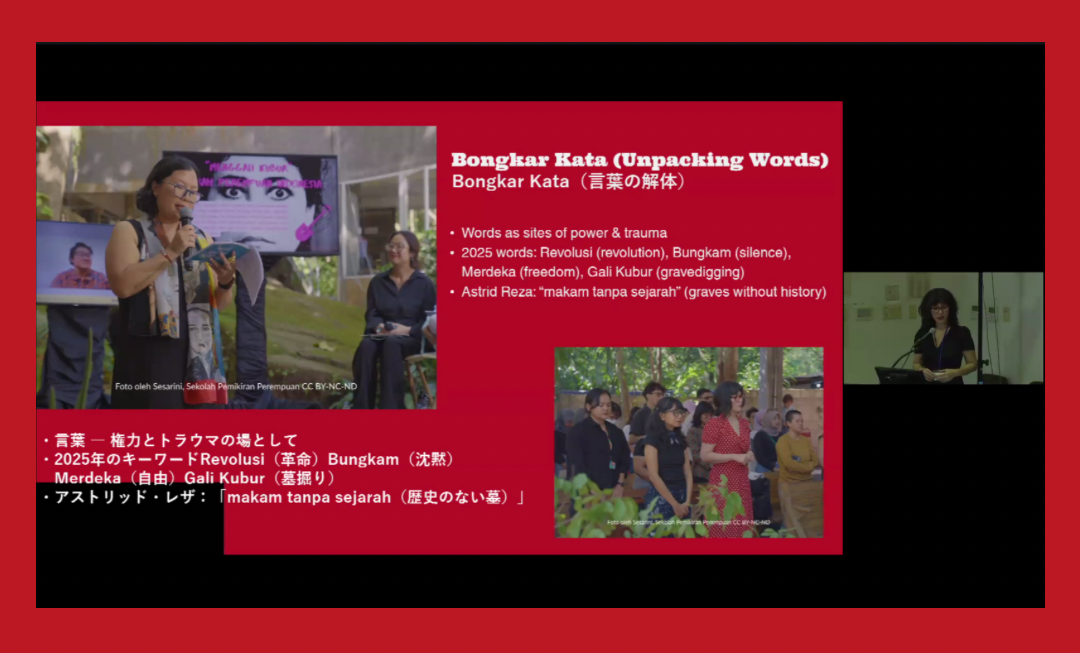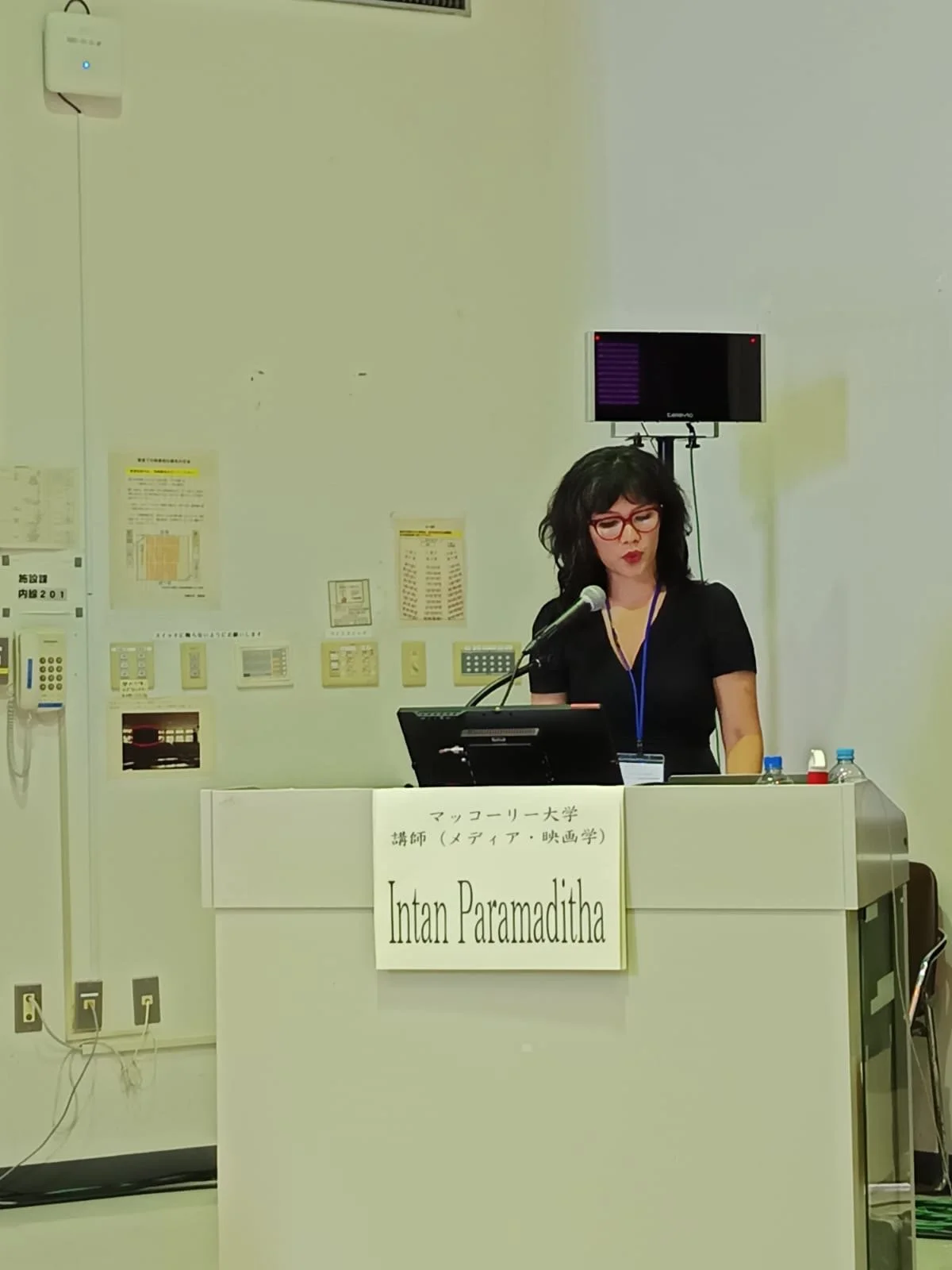The Connections Between Gender and Violence in Asia - Okinawa
September 2025: I was invited to speak at the 78th SGRA Forum / 5th Asian Cultural Dialogues, Okinawa University, Naha. The forum gathered activists and scholars from across Asia to reflect on the link between gender and violence: the legacies of war, militarism, and the gendered body as a site of both trauma and resistance.
My talk, “Waris and Gravediggers: Inheriting Unresolved Gendered Violence in Indonesia,” explored how Indonesian feminists confront inherited violence—particularly the obliteration of the women’s movement Gerwani during the 1965 mass killings—through acts of mourning, historical excavation, and collective remembrance. Drawing on the work of Sekolah Pemikiran Perempuan (The School of Women’s Thought) and its network, I discussed how feminist practices such as storytelling, visiting graves, and reclaiming erased genealogies become forms of resistance against state and epistemic violence.
Presenting in Okinawa, a place marked by its own histories of colonisation, militarisation, and sexual violence, was profoundly moving. I learned much about the impact of US military bases on the Okinawan society and environment. I also learned about struggles across Asia discussed at the forum, from the activism to advocate “comfort women” issues in Japan and Korean survivors’ ongoing fight for justice, to feminist activists in Thailand who continue to challenge patriarchal and state oppression.
On Sept 14-15 we joined a study tour to Miyako Island to visir sites dedicated to Korean “comfort women” and the Arirang memorial, built by local residents to honour victims of sexual violence. The Japanese military established nearly 150 comfort stations across Okinawa.
Many thanks to the Atsumi International Foundation / Sekiguchi Global Research Association for inviting me to take part in this forum.


